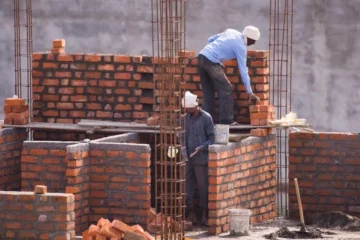
While the Union government was forced to strengthen its rules issued under the Real Estate (Regulation and Development) Act, 2016 (RERA) following much pressure from citizen groups, the dilution of the rules to give leeway to builders has started at the level of various states.
So far, the state governments of Uttar Pradesh and Gujarat have notified their own version of the RERA rules while Karnataka and Madhya Pradesh are yet to notify the draft rules prepared by them. The Ministry of Urban Development, which is in charge of urban planning in Delhi has also recently finalised its rules. Almost all states have tweaked the regulations in the interest of real estate developers mainly by excluding ongoing real estate projects, which account for a majority of realty projects in the country.
The Real Estate (Regulation and Development) Act, 2016, requires mandatory registration of all ongoing and new real estate projects, provides safeguards against delays and fraudulent practices and imposes punitive measures as well as jail term on unscrupulous builders. It also requires builders to disclose project details on the website of the regulator along with quarterly update on its progress on site.
The Ministry of Housing and Urban Poverty Alleviation issued the draft rules under RERA in June this year. Home buyers’ groups immediately made representations before urban development minister Venkaiah Naidu stating that the draft rules did not subject ongoing projects to the stringent regulatory framework that is applicable to new projects under the Act. After much fine-tuning, the final rules were notified four months later in October. The Central government’s rules are applicable to all Union territories without their own legislatures. In case of states, the Central rules were to serve as a model template on which they could base their own rules tailored to meet specific local demands.
“One after another, states have begun diluting the regulatory protection provided to home-buyers under the central Act and rules,” said a Central government official. The draft rules of Madhya Pradesh and Karnataka, both issued this month, are an exact replica of the Union government’s flawed draft rules instead of the final rules. On the other hand, the notified rules of Gujarat and UP have inserted various provisions so as to exclude ongoing real estate projects from the purview of the real estate regulator.
Section 3 of the Central government’s RERA mandate that all “promoters of all ongoing projects which have not received completion certificate” will have to register with the state-level regulatory authority and provide complete disclosure of project details. In contravention of this crucial section of the Central Act, the Gujarat government has decided to exempt all projects that were launched before November 2016 even if the construction is yet to start on ground.
The UP government has inserted clauses that will take several ongoing projects out of the Central Act’s purview. These include projects that have applied for (not received) completion certificates, projects where conveyance deed has been executed in 60 per cent of cases and even those incomplete projects where maintenance handed over to association of allotees Moreover, the UP government has reduced the penalty for compounding the offences and also watered down the definition of common areas.
Scenario in Delhi
In case of Delhi, urban ministry officials point out that the under-preparation draft rules will require builders to make public details of only those court cases that have been disposed of in the preceding five years without having to disclose the pending litigation. The reason given for this move is that the developer may be unaware of the various cases filed against his projects at the time of furnishing such information to the regulatory authority.
Abhay Upadhyay, national convenor of the citizens’ collective Fight for RERA said that, in a country like India where consumer disputes take years to get resolved in courts, allowing builders to conceal details of ongoing litigation will disadvantage home buyers. “Not only will this reduce transparency and not allow consumers to take informed decisions, it is also in contravention of Section 4 (2) (b) of RERA which clearly provides for revealing “details of cases pending”. This provision will reduce transparency; consumers will not be able to take informed decisions. The Urban Development portfolio is held by Venkaiah Naidu who as the housing minister willingly improved his ministry’s draft rules based on our suggestion. Hence we feel that he has been misled by the UD ministry officials into approving a diluted version for Delhi,” said Upadhyay.
Fight for RERA, which has already written letters to Prime Minister Narendra Modiand the chief ministers of Gujarat and UP on the matter of dilutions, is now planning to bring these issues to the notice of Naidu in a meeting with him this Saturday.
“RERA derives its powers from the concurrent list. States are free to make their rules under the Act but these rules can’t be in contravention of the central legislation. This amounts to questioning the supremacy of Parliament,” added Upadhyay.
[Source:-THE INDIAN EXPRESS]




